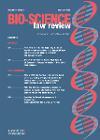Bio-Science Law Review - Volume 16 - Issue 6

Articles
FROM FARM TO FORK: THE REGULATORY STATUS OF NON-GMO PLANT INNOVATIONS UNDER CURRENT EU LAW
PHILIPPE DE JONG, ELENA BERTOLOTTO Altius, Brussels - INDIANA DE SEZE Lawyer admitted at the Paris and Brussels bars
The existing EU regulatory framework, when considered holistically, provides efficient guarantees that every stage of the agri-food supply chain is subject to constraints imposed by harmonised legislations. The authors argue that non-GMO NBT (new breeding techniques) products should not be treated differently from CBT (conventional breeding techniques) products.
THE UK WHITE PAPER ON BREXIT: WHAT DOES THE UK GOVERNMENT PROPOSE ON MEDICINES REGULATION?
PAUL ENGLAND Patents Group, Taylor Wessing
The UK Government White Paper, 'The Future Relationship between the United Kingdom and the European Union', published on 12 July 2018, is the second significant document relating to Brexit this year, after the draft Withdrawal Agreement on 29 March 2018. The White Paper sets out the United Kingdom's negotiating position for its long-term relationship with Europe after Brexit on 29 March 2019, and the 'transitional period' that is expected to follow. The White Paper seeks to find an alternative to the two options for the future relationship currently on offer from the EU, neither of which is acceptable to the UK Government. This article examines the proposals in the White Paper, their relationship with the Withdrawal Agreement and what they say of relevance to the life sciences sector, as well as the consequences of a 'no deal' Brexit
Case Comments
SHIRE v EMA: CLARIFICATION BY THE GENERAL COURT ON THE AVAILABILITY OF ORPHAN DESIGNATION FOR PRODUCTS WITH THE SAME ACTIVE SUBSTANCE
GARETH MORGAN AND FIONNUALA RICE CMS Cameron McKenna Nabarro Olswang LLP
In the judgment handed down in March 2018, the EU General Court provided important clarification on the issue of whether a new medicinal product can be granted orphan status when it has the same active substance as an existing orphan product held by the same marketing authorisation holder. The court confirmed that the EMA was not entitled to refuse to validate Shire's application for orphan designation on the basis of an existing marketing authorisation for an orphan product containing the same active substance, a decision which will be welcomed by innovator companies.
NGOsCAN ASK THE COMMISSION TO REVIEW ITS DECISION ON GENETICALLY MODIFIED FOOD AND FEED
BRUNO FONTEYN AND DELPHINE PHAN CMS, Brussels
On 14 March 2018, the General Court ruled that NGOs can ask the European Commission to review its decision authorising the placing on the market of genetically modified food and feed. According to the court, Testbiotech, a German NGO dedicated to banning the consumption of GMOs, could request the Commission to review its decision based on the Aarhus Convention, which allows NGOs to participate in the decision-making process in environmental matters. Contrary to the Commission, the court ruled that the request for an internal review does relate to 'environmental law' and thus falls within the scope of the Convention
REMEDIES FOR PATENT INFRINGEMENT IN THE MEDICAL SECTOR
SUSIE MIDDLEMISS AND RAFAELLA FELTHUN Slaughter and May, London
A patentee's remedies for patent infringement can be limited by the courts where a patent relates to a medicinal product. In Edwards Lifesciences LLC v Boston Scientific Scimed Inc [2018] EWHC 1256 decision, public health issues led to a qualified injunction. The authors review the circumstances in which injunctions are available and how and when an injunction might be limited, and the availability of damages and accounts of profits in lieu of an injunction.
